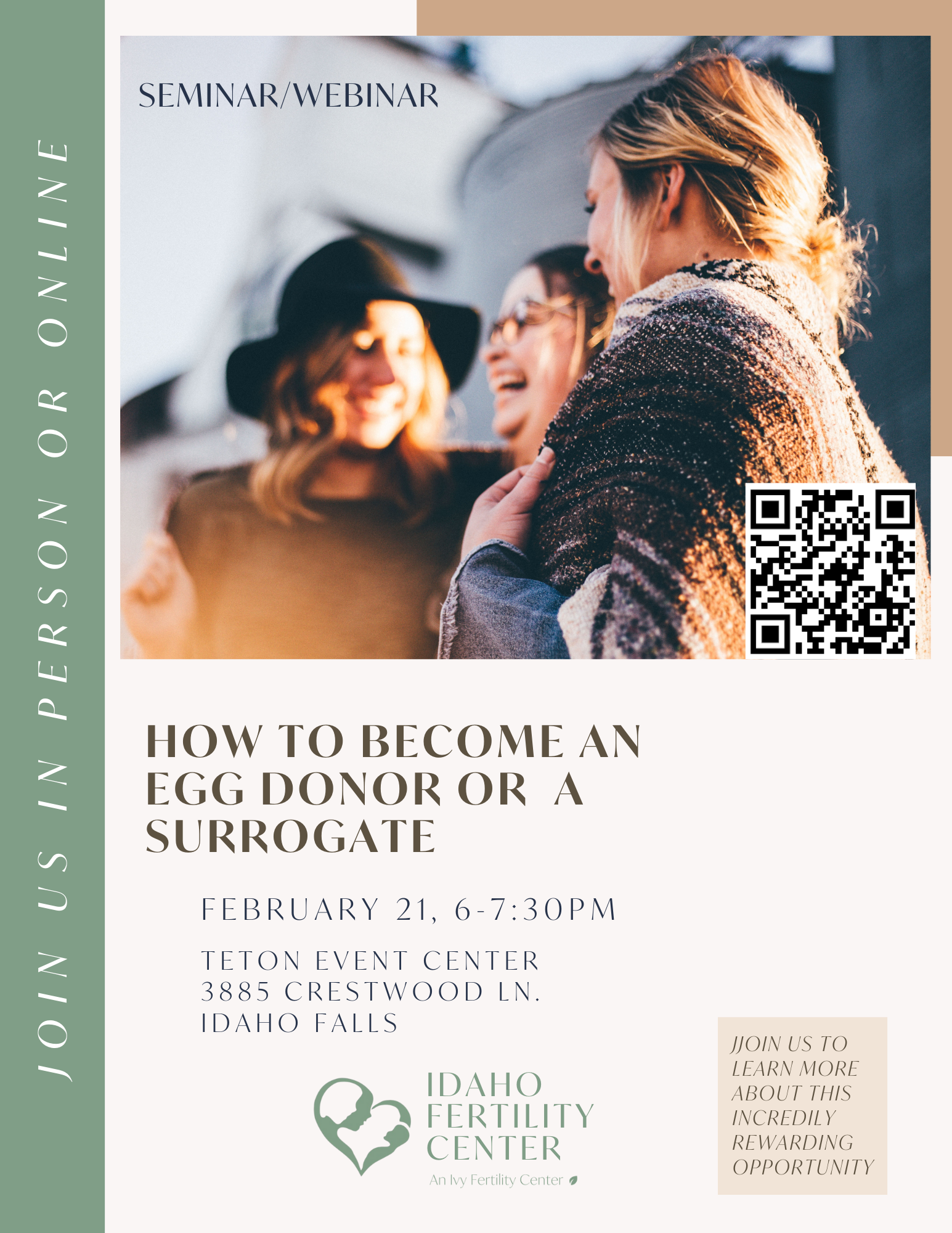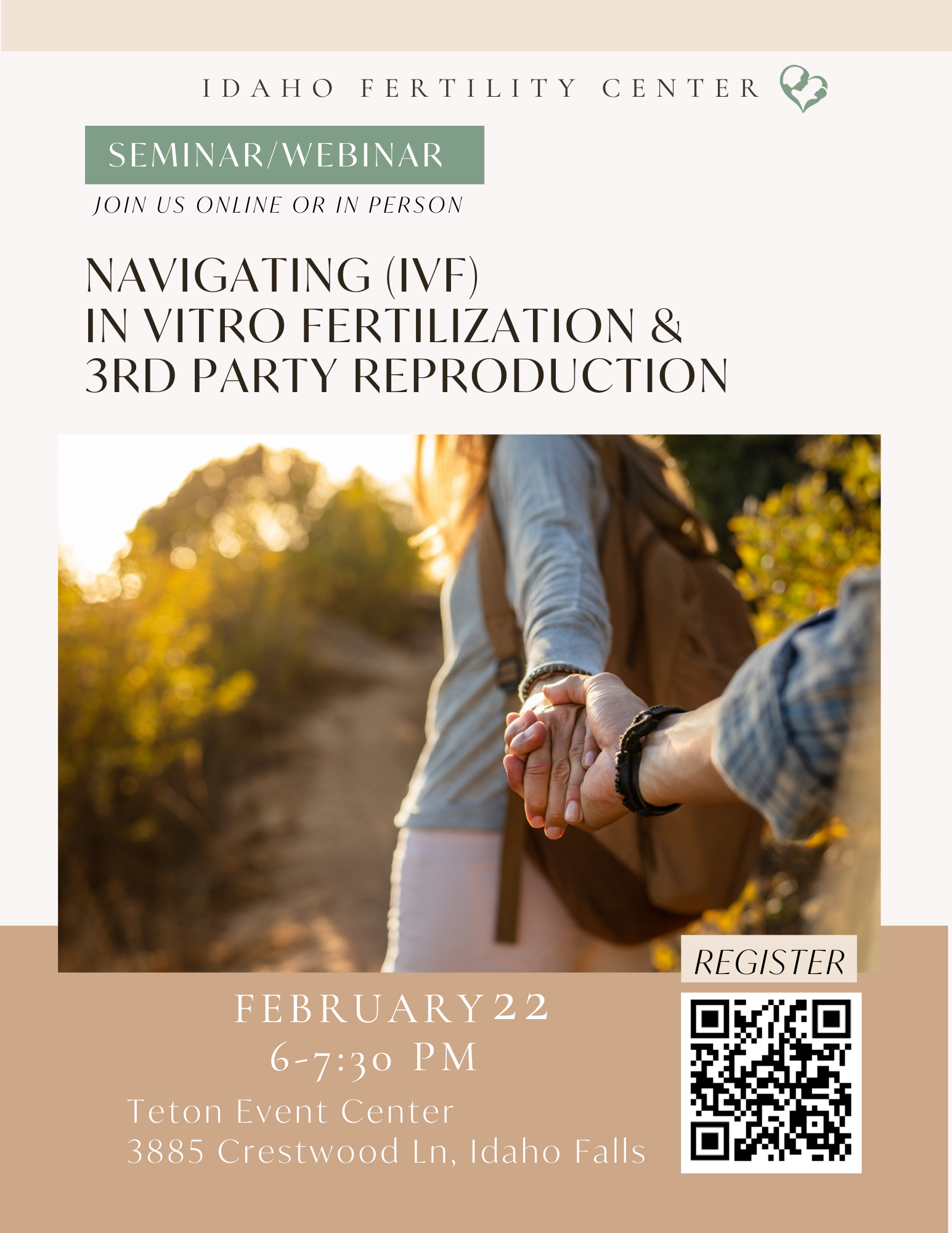
Pregnancy loss can happen to any woman. It is not uncommon for a woman to have two or more pregnancy losses in their lifetime, even if they’ve previously had normal pregnancies. Often, a woman is concerned if having a miscarriage(s) will affect her future fertility.
Although miscarriage is different than infertility in the sense that pregnancy is occurring, both issues can be addressed and treated at Idaho Fertility Center. There are things we can do to identify why miscarriage is taking place and establish a plan to help reach a woman’s pregnancy goals. Here are some things you can expect when you consult one of our fertility specialists.
Idaho Fertility Center
Our skilled Reproductive Endocrinologists will review your medical history, any past surgeries you may have had, and the medications you are currently taking. We will take into account your age as a factor because over time, a woman’s fertility rate decreases and their risk of miscarriage increases (after age 35 in women). There are a number of factors that can lead to miscarriage and screening for each can help identify barriers so they can be addressed or treated.
We will then perform blood work and offer genetic testing, looking for the following:
-Chromosomal abnormalities because of age: Chromosomes split or are duplicated, affecting an embryo’s viability. Tests can help us check the embryos to be transferred back during in-vitro fertilization that would be normal chromosomally.
-Endocrine disorders: Here we check thyroid levels looking at hypothyroidism (underactive thyroid), prolactin levels, hemoglobin a1c, any one of which might lead to potential miscarriage. Proper supplementation can help remedy this risk factor.
-Immune disorders: Blood work is done to check for autoimmune issues such as thrombophilia by checking your family history to see if there are blood clotting disorders.
-Antiphospholipid antibodies: Here we perform Lupus testing, positive beta 2 glycoprotein testing along with lupus anticoagulant testing. We can successfully help couples affected by these disorders.
Anatomical Issues
Another way we evaluate for recurrent pregnancy loss is by looking at anatomical issues, for example, a patient might be born with anatomical issues like a physical abnormality in their uterus.
-Fibroids (benign tumors) or polyps in the uterine cavity can leave avascular scarring that can disrupt normal pregnancies, and benign polyps can make it difficult for embryos to attach.
-After a dilation and curettage (D&C) surgery it can leave scarring in the uterus, making it hard for an embryo to attach and grow.
-We check for these things with a hysterosalpingogram (HSG) – placing a contrast into the uterus and then X-raying to make sure there are no blockages in the fallopian tubes that could keep the sperm from reaching the egg.
-We also use a water sonogram/water ultrasound to take 3D images of the uterus to make sure there isn’t anything in the uterine cavity that could prevent the embryo to be carried to full term.
Lifestyle Changes
There are things you can even do at home before you ever come in for evaluation and treatment. The top of the list is to change your diet as needed. Obesity increases the chance of miscarriage, and even losing 10% of your weight can make a huge difference! Likewise, being undernourished can lead to miscarriage, so the goal is to find a healthy balance. If you are a tobacco or nicotine user, now is the best time to give it up as neither is good for your health. If you are a heavy user of caffeine or alcohol, consider cutting back. Even moderate consumption can improve your health.
Hope
While we may not be able to control anatomical anomalies, there are things we can do to help you conceive. Even after having one or two miscarriages, you can still achieve a successful pregnancy. It’s all too easy to focus on the 20% chance of miscarrying after having one previously instead of the 80% chance you still have of successful full-term pregnancy and delivery. This change in perception can keep you going when you are tempted to give up. But the fact is you have a higher chance of having a normal pregnancy than another miscarriage. You get to decide whether you have the emotional reserves to keep trying, and our goal at the Idaho Fertility Center is to help you feel better about your chances and support you in your efforts to achieve your parenting dreams.
Some Final Thoughts
If you have had a miscarriage after 12 weeks of pregnancy, it doesn’t mean you need to wait to try again. For younger patients especially, hearing the heartbeat often means going on to have a successful pregnancy. Studies show that it is actually better to try again as soon after the miscarriage rather than waiting longer. If you want to try again there is no physical need to wait unless you need time to emotionally process your loss, and only you can know that. Please know that there was nothing you did to cause the miscarriage, nor was there anything you could have done to stop the miscarriage.
If you are ready to try again soon after your pregnancy loss, you can, even if it is one month after the miscarriage. You will still have a much higher chance of carrying to delivery when compared to the possibility of having another miscarriage. Call 208-529-2019 today to talk to one of our team members about your next step in your parenting journey.
Utah Fertility Center doctor, Dr. Jason Parker’s talks about the sensitive topic of miscarriage loss: https://www.facebook.com/163339703677777/videos/1559869317448260




